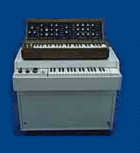






































|
After Crying - Megalázottak és Megszomorítottak
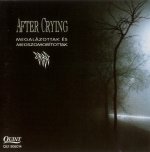
Comments:
After Crying have been "at it" for at least 10 years, and, thanks to the internet, they have slowly built a strong international fan base outside of Hungary. Megalázottak és Megszomorítottak, released in 1992, is a unique album in the world of prog. The new listener quickly notices that the band is more classical, in nature, than rock, and consists of a pianist, cello player, trumpet player, bassist, and drummer. The music on this album is done in a post-minimalist style. By that, I mean that the compositions feature slow extended notes, and relaxed attitudes, but the band isn't afraid to flirt with complexity(almost like some of John Adam's work) every once in a while. The musicians focus on creating beautiful atmospheres that are haunting, sometimes depressed, and dark. In fact, once in a while I'm reminded of Univers Zero, yet After Crying are less frantic. The first track "A Gadarai Megszállott" is a 22-minute masterpiece. The first 7-minutes features slow, tension-building, interaction between piano and cello. I quickly noticed that the drummer tends to lay low, and he usually taps out variations of the melodies on his cymbals. The vocal section that starts around the 8-minute mark really surprised me. My only experience previously with the Hungarian language in music came via my dad's Hungarian folk albums. I was actually expecting the vocals here to sound closer to vocals featured in Russian, German, and Romanian music, but, surprisingly, the singing on this album is actually closer to Italian. By that, I mean that the vocal melodies are very close to the ones found on Italian prog albums. The singer tends to sing in a sad, reflective sort of way. Towards the end of that vocal section the band starts heading towards more aggressive territories, yet even at their most aggressive, the band sounds controlled and reserved. The pianist, at one point towards the last part of the piece, bursts out a Banco-like piano riff. At this point, the trumpet is also noticeable. The trumpet-style is minimalist, and usually involves a few sustained notes. Once in a while, I also hear a bit of a Miles Davis influence. Now, if I had to point out a flaw, I would mention the climatic(or release) section of the composition. After building-up tension for about 15-minutes, the ending isn't strong enough to resolve the piece(it's quite possible that the band meant for it to sound unresolved). The 4 other pieces that finish the CD are not as strong as the epic. Overall, this is one of the top 1990s prog CD that I've heard.
Year: 1992
Compositions: 9/10
Vocals(in Hungarian): 8/10
Recording Quality: 9/10
After Crying - Fold Es Eg
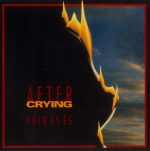
Comments:
Well, I've been able to test out several After Crying albums. Most of them are quite good, except when the band sings in English. However, the thing that really stood out about this band is that, most importantly, they tend to try out new ideas with each new album. So, as impressed as I was with Megalázottak és Megszomorítottak, that style would rarely get re-visited on later albums. 1994's Fold Es Eg is another great album. Listeners will instantly notice that the band, at the time, seemed interested in Keith Emerson's compositional style. Not surprisingly, about 3/5 of the CD features ELP-influenced compositions, and the guy that stands out on most tracks is pianist/keyboardist Csaba Vedres. But, just when you think that the whole CD consists of ELP-like playing, your ears are treated to what sounds like Hungarian church chanting/singing. Well, I can't really explain it, but it sounds like a combination of Gregorian chanting mixed with Beach Boys harmonies. The Hungarian vocals are certainly not the band's strongest aspect, but they are far from horrible; although the Hungarian language might take getting use to. Overall, this is certainly one of After Crying's best albums.
Year: 1994
Compositions: 8.5/10
Vocals(in Hungarian): 8/10
Recording Quality: 9/10
Másfél - Angyaltojás/Angel's Egg
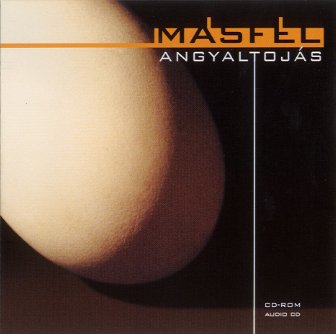
Comments:
Másfél is a relatively new Hungarian progressive/experimental band. The band started around 1989 with a goal to create a dynamic psychedelic instrumental music that emphasizes rhythmic/percussive-based grooves. The musicians, who look quite young on the CD photo, seem really open-minded about bringing in influences from all sorts of musical genres. So it's not surprising to see genres like trance, techno, monotonous electronic, psychedelic, and progressive rock listed as influences. Angyaltojás/Angel's Egg, released in 2000, consists of 7 tracks. 6 of those tracks range between 6 to 10-minutes in length, while the last track is a short, radio-friendly, tune(more on that later). The novice listener quickly notices that the band has a very modern sound. Their instrumental music sounds like a mixture of Gong, Hawkwind, Boud Deun, Primus, and Uz Jsme Doma. The compositions are quite aggressive in a Primus or Boud Deun sort of way, yet clearly influenced by space-rock bands like Gong and Hawkwind. The addition of Eastern European sax melodies, on a few tracks, even bring Uz Jsme Doma to mind. All of the tracks are driven by bassist János Hegedüs, whose style sounds like a combination of Les Claypool and Tony Levin. His style is percussive-based, fat(5 or 6-string bass?), and bright. Around the bass riffs, the rest of the band tends to add chords, melodies, and countermelodies. Guitarist Barnabas, for example, tends to hit chords every other beat or so, while their Cellist and Sax player add colorful melodies. Their drummer somehow keeps everything tight and focused. Overall, the first 6 tracks are very strong, but for some reason the band decided to finish the CD with a short "radio-friendly" track. This track is partly based on Blondie's "Funky Town"(I'm not joking) and features cheesy sax-riffs. I guess this track was added as a joke, but maybe it should have been kept as a free download on their website. Overall, this is a strong modern progressive rock CD. Másfél is easily one of the top bands out there.
Webpage:
Másfél
Solaris - The Martian Chronicles

Click on the album cover to hear a RealAudio
sample.
Comments:
The Martian Chronicles was released in 1983, and quickly became a hit in Hungary. But, it wasn't until about 1995, after Solaris played Progfest '95, that the rest of the prog world got a chance to discover this Eastern European gem. The album starts off with a side-long epic entitled "The Martian Chronicles Parts 1-6" which mixes Klaus Schulze-like synth work, with overly melodic interplay between piano, guitar, and flute. Nothing here gets too complex, rather the band seemed to have focused on creating beautiful, and playful, themes. After the side-long epic, things get a bit more aggressive with my favorite piece called "M'ars Poetica". In my opinion, this sounds like a progressive, and instrumental, version of Iron Maiden with flutes, and Moog synths thrown in. The album goes on to end with a few more shorters tracks that feature aggressive synth solos, melodic flute interludes, and metal-guitar riffing. A classic!
Year: 1984
Compositions: 9/10
Vocals(none): N/A
Recording Quality: 8/10
Syrius - Devil's Masquerade
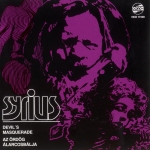
Click on the album cover to hear a RealAudio
sample.
Comments:
This is a group that I was recently introduced to through a CDR trade. Their music impressed me so much, that I quickly ordered a copy of the official CD. If the story behind the band is correct, the group started in Hungary and quickly moved to Australia. They recorded a few albums there including Devil's Masquerade, and managed to build a decent following away from their home country. Since Syrius tends to get listed as a Hungarian group in most prog catalogs, I decided to list them here rather than in my Australian section, but they are definitely better known in Australia than in Hungary. The new listener will quickly notice that this group was influenced by Jethro Tull, Soft Machine, and early Chicago. What is surprising is that not only is the music rather complex, but alot of it actually borders on Rock-in-Opposition(RIO). The tracks tend to emphasize complex jazzy interplay between saxes, flute, some guitar, bass, piano, and organ. Their singer, who sings in English with a bit of an accent, reminds me a bit of Ian Anderson. The vocals are not the strongest part of the album, and might bother some listeners. The only flaw that I can point out is that the album ends in an unexciting way. Actually, the first 5 minutes of the last track sounds as good as the rest of the album, but the band seems to run out of energy during the last 3 minutes. Overall, the frantic pace, and complexity featured during most of the album is worth the price of the CD alone. For a 1972 release, these guys were quite ambitious.
Year: 1972
Compositions: 9/10
Vocals(in English): 7/10
Recording Quality: 9/10
You And I - You And I
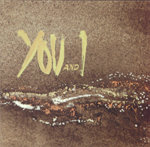
Comments:
You and I's debut CD is mostly light progressive rock mixing commercial influences. My only complaint here is with the use
of a drum-machine rather than a real drummer. The female vocals, both in English and
Hungarian, are excellent. Their guitarist is also quite good. This
album would be enjoyed by those who also enjoy Trevor Rabin-led Yes and late-70s Genesis.
Webpage:
You And I
|
